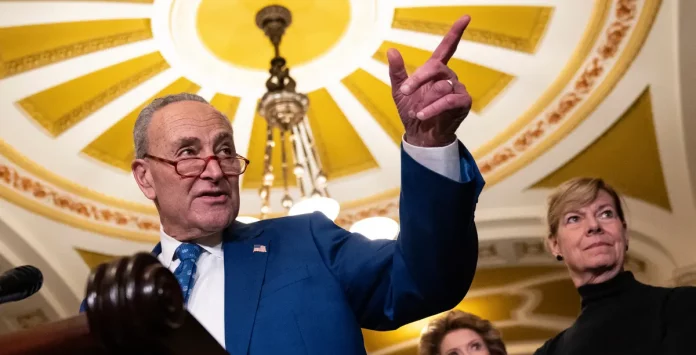The House is allowing open amendments on a bill for the first time in nearly seven years on Thursday, finally giving rank-and-file Republicans more of a chance to mold the end product of legislation that moves through the lower chamber.
But the process, a concession Kevin McCarthy (R-CA) made to Republican hard-liners such as Rep. Chip Roy (R-TX) to win the speakership, also gives Democrats an opportunity to slow down legislation and put swing district Republicans on record with tough votes.
The Strategic Petroleum Reserve Act, which the House is expected to pass narrowly on Friday, ties releases from the United States’s oil reserves to increased drilling in federal land and waters. The bill is a safe test ground for the open amendment process since it won’t pass the Democratic-controlled Senate, and the White House has promised to veto it even if it did.
There are over 100 amendments, each requiring consideration under the “modified open rule,” and the amendments must be strictly related to the bill at hand.
So far, Democrats are offering the majority of them.
The first two amendments, however, will be offered by conservative Reps. Matt Gaetz (R-FL) and Marjorie Taylor Greene (R-GA) and would further codify the terms under which the president can tap the petroleum reserve.
Many of the Democratic amendments seek to prohibit additional drilling in or near their home districts. Rep. Kathy Castor (D-FL), former chairwoman of the Select Committee on the Climate Crisis, will offer the third amendment, to exclude the South Atlantic Planning Area and other parts of Florida “from being leased for oil and gas production as part of a proposed plan.”
“There are too many contingencies in the world today, whether it’s war, supply chain problems [or] natural disasters to irrationally tie the hands of our commander in chief,” Castor, who is offering several amendments, said on a press call Tuesday. “This Republican bill also would open up areas to drilling and pollution that should be off limits.”
Progressive Rep. Rashida Tlaib (D-MI) will give amendments that would require drilling projects to submit environmental impact reports before gaining approval, as well as force public disclosure of the donations to members of Congress from oil and gas lobbyists.
The House overwhelmingly passed a bill banning the sale of reserve oil to China earlier this month in a 331-97 vote.










